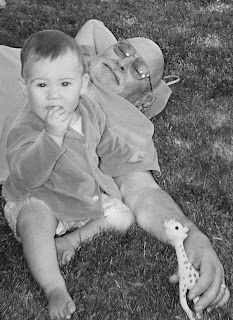Mark Twain's War Prayer
WAR PRAYER (excerpt) by Mark Twain, 1904, during the war against The Phillipines.
O Lord our Father, our young patriots, idols of our hearts, go forth to battle -- be Thou near them! With them -- in spirit -- we also go forth from the sweet peace of our beloved firesides to smite the foe. O Lord our God, help us to tear their soldiers to bloody shreds with our shells; help us to cover their smiling fields with the pale forms of their patriot dead; help us to drown the thunder of the guns with the shrieks of their wounded, writhing in pain; help us to lay waste their humble homes with a hurricane of fire; help us to wring the hearts of their unoffending widows with unavailing grief; help us to turn them out roofless with little children to wander unfriended the wastes of their desolated land in rags and hunger and thirst, sports of the sun flames of summer and the icy winds of winter, broken in spirit, worn with travail, imploring Thee for the refuge of the grave and denied it -- for our sakes who adore Thee, Lord, blast their hopes, blight their lives, protract their bitter pilgrimage, make heavy their steps, water their way with their tears, stain the white snow with the blood of their wounded feet! We ask it, in the spirit of love, of Him Who is the Source of Love, and Who is the ever-faithful refuge and friend of all that are sore beset and seek His aid with humble and contrite hearts. Amen.
FRAGMENT FROM
THE MEXICO CITY
ZOCALO
© Don Brennan
nameless shaman
burning sage up
unnamed
nasal highways
into what remains
of brains
left too long away
from flirting sunlight
fleeting twilight
sage and midnight
left too long needing
soft desert winds
the whiff of sage scent
on a soul search
swirling peace
understanding
sacred smoke
on a mission
a healing mission
seducing demons
convincing evil
to be kind
to curl up as in
the womb again
convincing evil to
let go of itself
seducing demons
to rise with the smoke
to rise towards
compassion.
DALAI LAMA, half-Marxist
Quoted from the Wikipedia article: The Fourteenth Dalai Lama (under the heading, “Economics”):
“Of all the modern economic theories, the economic system of Marxism is founded on moral principles, while capitalism is concerned only with gain and profitability. Marxism is concerned with the distribution of wealth on an equal basis and the equitable utilization of the means of production. It is also concerned with the fate of the working classes—that is, the majority—as well as with the fate of those who are underprivileged and in need, and Marxism cares about the victims of minority-imposed exploitation. For those reasons the system appeals to me, and it seems fair. I just recently read an article in a paper where His Holiness the Pope also pointed out some positive aspects of Marxism.
“As for the failure of the Marxist regimes, first of all I do not consider the former USSR, or China, or even Vietnam, to have been true Marxist regimes, for they were far more concerned with their narrow national interests than with the Workers' International; this is why there were conflicts, for example, between China and the USSR, or between China and Vietnam. If those three regimes had truly been based upon Marxist principles, those conflicts would never have occurred.
“I think the major flaw of the Marxist regimes is that they have placed too much emphasis on the need to destroy the ruling class, on class struggle, and this causes them to encourage hatred and to neglect compassion. Although their initial aim might have been to serve the cause of the majority, when they try to implement it all their energy is deflected into destructive activities. Once the revolution is over and the ruling class is destroyed, there is not much left to offer the people; at this point the entire country is impoverished and unfortunately it is almost as if the initial aim were to become poor. I think that this is due to the lack of human solidarity and compassion. The principal disadvantage of such a regime is the insistence placed on hatred to the detriment of compassion.
“The failure of the regime in the former Soviet Union was, for me, not the failure of Marxism but the failure of totalitarianism. For this reason I still think of myself as half-Marxist, half-Buddhist.”


0 Comments:
Post a Comment
<< Home